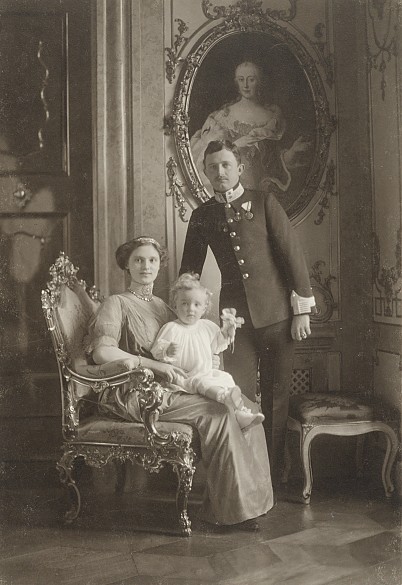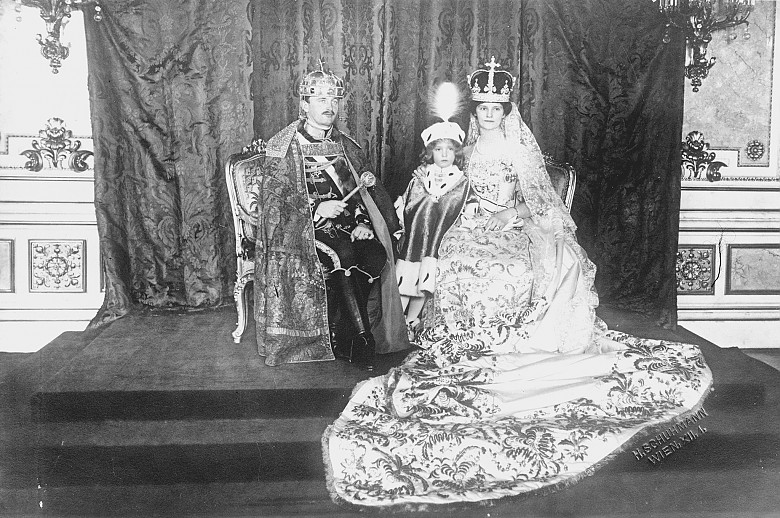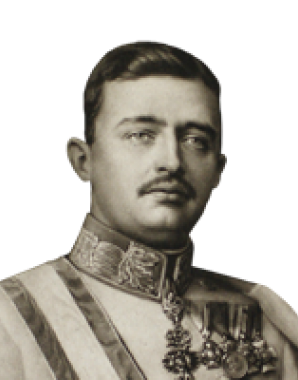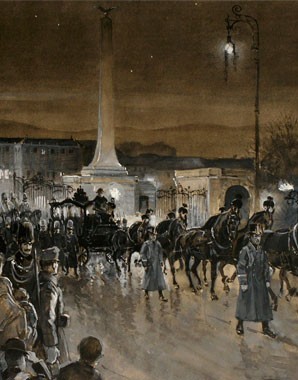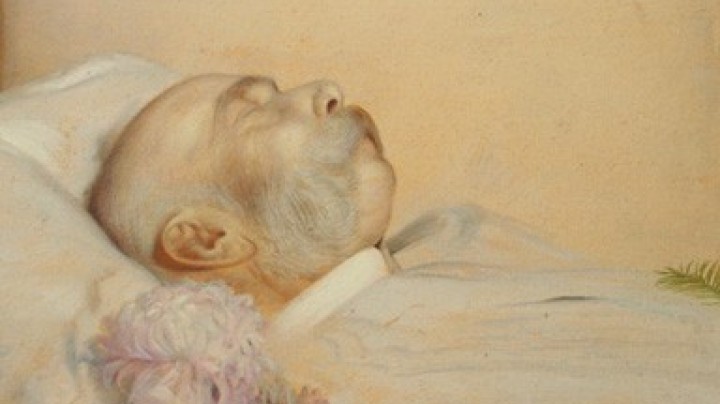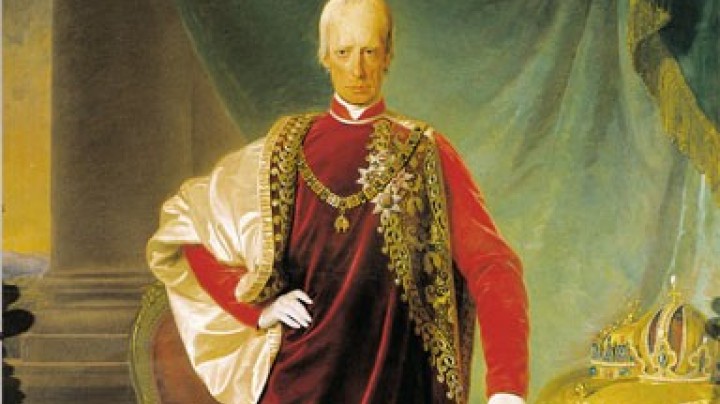Emperor Karl I and the collapse of the Monarchy
In November 1916 Emperor Franz Joseph died after a long reign of 68 years. In the middle of the turmoil of the First World War the Monarchy had lost the symbolic figurehead of Habsburg power. The political elites of the Habsburg Monarchy were ill-prepared for the change. Whole areas of public life were seized by a sense of disorientation.
In deliberate affirmation of the principle of dynastic monarchy, Franz Joseph’s successor and great-nephew Karl had already had himself crowned king of Hungary in December 1916. At this ceremony, the monarch had guaranteed the kingdom’s existing constitution in the coronation oath, which upheld the principle of dualism and thus confirmed the privileged status of the Magyars (together with that of the German Austrians) within the multinational state. With this, the last opportunity for transforming the Dual Monarchy into a more federalist political structure with greater involvement of the Slav population had been thrown away. Historians regard this as one of Karl’s greatest strategic errors.
Karl’s convening of the Reichsrat (Imperial Council; the lower house of the Austrian parliament) in May 1917 was generally seen as a conciliatory measure. It reactivated popular representation after the parliament of the Austrian half of the Empire (in contradistinction to the Hungarian parliament, which continued its activities unhindered) had been dissolved immediately following the assassination at Sarajevo. This step had been taken because the workings of parliament could not be guaranteed as a result of the tensions between the various subject nationalities following the declaration of war in 1914. The government ruled on the basis of emergency law according to Paragraph14 of the 1867 Constitution which enabled legislation by decree, without enactment by the Reichsrat. During the first years of the war Austria was thus de facto a dictatorship.
After this interruption of three years many of the seats in the debating chamber were vacant, a telling sign of the times: although some of the deputies had died in the intervening years and others had fallen at the front, they had not been replaced. A number of opposition politicians (such as the future president of Czechoslovakia, Tomáš G. Masaryk) had gone into exile to escape persecution by the Austrian authorities. Several deputies had been prosecuted and imprisoned for political subversion; the Italian deputy Cesare Battisti had even been executed for high treason.
Contrary to the emperor’s intentions, the reconvened Reichsrat now became the most important arena of escalating national conflicts and the disintegration of the Monarchy. Constantly changing due to these seemingly intractable issues, the governments in Cisleithania thus always lacked the endorsement of the Reichsrat.
The situation intensified further in the summer of 1918. The Austrian offensive on the Italian front ended in a fiasco, and the exhaustion of Austria’s military capabilities was now obvious to the world at large.
The situation in the hinterland was unstable, made worse by catastrophic shortages. In October 1918 negotiations failed between the imperial government and the deputies and representatives of the empire’s subject nationalities. Emperor Karl thereupon published a national manifesto on 16 October, calling for the representatives of the individual nationalities to form national assemblies. The emperor’s intention was to transform the Austrian half of the Empire into a federal state with extensive autonomy for the various national groups. However, this tardy attempt to federalize the Habsburg Empire was no longer perceived as an invitation to reform the Monarchy but an opportunity for future autonomy, with the option of seceding from the Monarchy becoming ever more realistic. Karl’s manifesto thus involuntarily accelerated the collapse of the Monarchy’s power.
